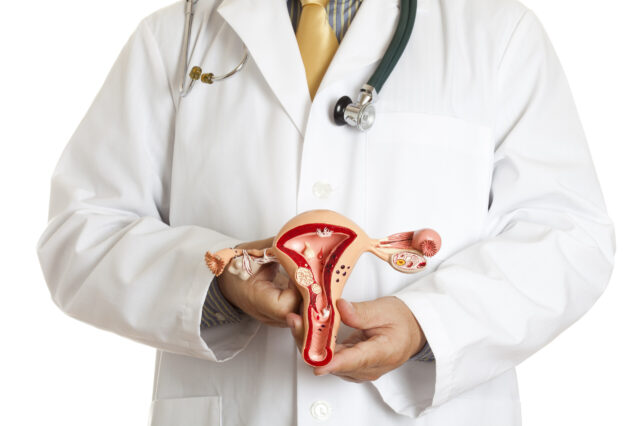Ms. Zhang, 51 years old, experienced excessive menstrual bleeding, severe dysmenorrhea, and persistent lower abdominal and pelvic pain, even while lying down, described as a cutting sensation. After an ultrasound at the hospital, she was diagnosed with uterine fibroids and surgery was recommended. Preferring to avoid uterus removal surgery, she sought assistance from traditional Chinese medicine (TCM).
During her initial consultation, detailed TCM diagnostics revealed additional symptoms such as frequent epigastric pain, chest oppression, severe hair loss, and limb weakness. The diagnosis included patterns of blood stasis and heat accumulation in the uterus, combined with spleen-stomach qi deficiency. Treatment focused on promoting blood circulation to remove stasis, nourishing yin and clearing heat, and supporting spleen and stomach qi. The main herbal formula used was modified Si Wu Tang, incorporating Huang Qin, Huang Bai, Zhi Mu, and Sheng Di Huang for heat-clearing and yin-nourishing effects; Cang Zhu and Fu Ling for strengthening spleen and eliminating dampness; Gui Zhi for promoting circulation and relieving pain; Yan Hu Suo and Mu Xiang for moving qi and alleviating pain; and Xian Ling Pi to tonify kidney and strengthen bones, as well as dispel stasis and stop bleeding. After taking powdered herbs and decoctions, Ms. Zhang’s menstrual pain decreased by 70% by August. Continued treatment resulted in no signs of dysmenorrhea by November, with reduced dosage of TCM herbs and decoctions.
Clinically, endometriosis is often seen located between the uterus and rectum, presenting symptoms such as heavy sensation in the coccyx before menstruation, soreness and weakness in the lower abdomen and thighs, and severe dysmenorrhea with large blood clots and excessive bleeding leading to headaches and secondary anemia. Western treatments may include progesterone, oral contraceptives, intrauterine devices, or leuprorelin injections, with surgery for severe cases. TCM treatment covers three aspects: preventing endometrial displacement, shrinking displaced endometrial tissue, and absorbing displaced tissue and blood. Uterine fibroids are related to high estrogen levels, genetic factors, and hormonal imbalance; dietary advice includes avoiding foods high in phytoestrogens like soy products, yam, evening primrose oil, and royal jelly. Through TCM herbs and decoctions, supplemented by acupuncture and moxibustion to improve uterine blood circulation, patients are advised to undergo regular ultrasound monitoring with Western medicine and most can benefit from TCM adjustments to alleviate menstrual discomfort and improve quality of life, reducing psychological stress associated with monthly menstruation.

